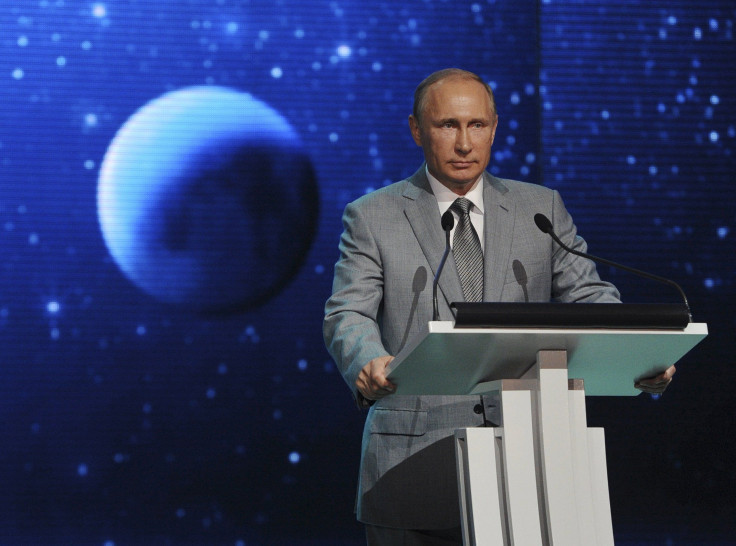EU Extends Sanctions On Russia As Moscow Warns Of 'Negative Consequences'

The European Union agreed Wednesday to a second extension of sanctions against Russian firms and individuals and Ukrainian separatists, for another six months, until March 2016. On the same day, the United States added 29 more individuals to its sanctions list against Russia, Reuters reported.
The 28-member EU agreed to the extension Wednesday and said it would sign off on it by mid-September, according to reports. The sanctions stem from Russia’s ongoing involvement in the conflict in Ukraine, which has taken the lives of over 6,700 and displaced over 1.4 million people since it started in April 2014. The previous sanctions extension was due to expire on Sept. 15. The sanctions target 150 people and 37 entities, making them subject to asset freezes and travel bans, according to the EU. Although EU countries have taken different stances on how to best end the conflict between Russia and Ukraine, the sanctions extension shows a united front.
EU amb today agreed 2 extend sanctions on 150 individuals & 37 entities from #Russia, #Crimea & E. #Ukraine to 15 March. official dec 14 sep
— Rikard Jozwiak (@RikardJozwiak) September 2, 2015The sanctions target key Russian officials, including Deputy Prime Minister Dmitry Kozak and senior Kremlin official Vladislav Surkov. A ceasefire agreement signed in Minsk in February has failed to stem the bloodshed and put an end to the conflict. A new truce agreed to for the first day of school, on Tuesday, had already frayed by Wednesday, with the Ukrainian government reporting the deaths of two civilians in eastern Ukraine.
The U.S. Bureau of Industry and Security extended its sanctions Wednesday by adding 29 people to its list who were listed under 33 entities. The government said the new additions were to “ensure the efficacy of existing sanctions on the Russian Federation for violating international law and fueling the conflict in eastern Ukraine.”
The persons and entities were listed in Crimea, Cyprus, Finland, Romania, Russia, Switzerland, Ukraine and the U.K. Among the additions were multiple seaports located in the annexed territory of Crimea and oil companies based in Russia.
Russia fired back over the additional sanctions and said it would respond proportionately. “The United States should have no illusions that it could continue this course without negative consequences for themselves,” said the Russian foreign ministry. “Response measures, not necessarily mirror ones, will follow from our side.”
Sanctions were first applied in 2014 over Russia's actions in Ukraine, including the March 2014 annexation of Crimea. Political scientists and foreign policy experts have since debated the effectiveness of Western sanctions on changing Russian behavior.
© Copyright IBTimes 2024. All rights reserved.












